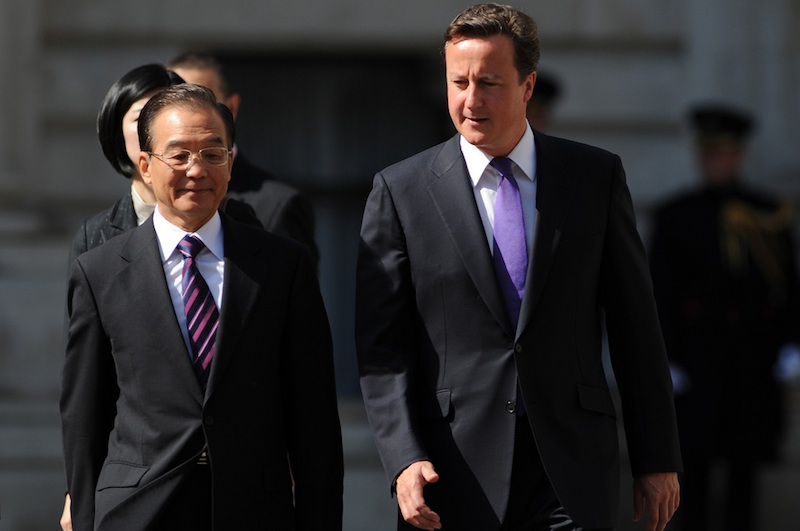It's official: China can rescue Britain's nuclear future


Dilemma: Nuclear power can go a long way to providing a country with plentiful, low-carbon, round-the-clock electricity. But building a reactor is an expensive proposition that can spiral to well over $10 billion.
This little niggling question of "who's going to pay" has vexed the U.K.'s efforts to start building two new reactors at a location called Hinkley Point. Earlier this week, Britain's energy secretary Ed Davey indicated that the problem could soon be solved, as he all but confirmed that Chinese investors would take a significant stake in the project led by French utility EDF. EDF has been ready to go for some time, but has essentially been stalling while it seeks financial assurances from the Brits.
Now, one or more Chinese nuclear companies will join the £14 billion ($22.4 billion) project with somewhere between a 30 percent and 49 percent stake, according to various reports, and Hinkley Point might well proceed (I'll believe it when I see it).
On the heels of that step forward, Britain's Chancellor of the Exchequer George Osborne - the government's second most powerful official after Prime Minister David Cameron - today proclaimed that China will be allowed to invest in British nuclear again and again and again, the BBC reported. The announcement has been a while coming - I reported early last year that China could well play the white knight in Britain's nuclear saga.
If China is inclined to spend, it could help secure an energy future for the U.K., where the government would like a total of eight new nuclear plants, some with multiple reactors, to help stave off what observers say is a looming energy shortage as old plants shut down. China bid on one of those sites last year.
The problem is, the government exited the energy business back in the Margaret Thatcher era, so it has to settle for establishing policy that encourages private investment.
Osborne's decision to open the door wide - issued while on a trade visit to China - "could lead to China taking a future majority stake in the development of the next generation of British nuclear power," the BBC wrote. Earlier in the week, energy secretary Davey said, "I think it is really possible we will see massive Chinese investment, not just in nuclear but across the board." He also said that Japan and South Korea would invest.
If China does come in, perhaps it could also bring some of its advanced nuclear technologies. In addition to building conventional plants, China is developing alternative reactor types such as molten salt reactors and "fast reactors" that could improve the economics, safety and weapons-implications of commercial nuclear power.
Photo is from 10 Downing Street via Flickr
Setting the British stage for Chinese nuclear:
- U.K. comes closer to multibillion pound nuclear reactor deal
- China syndrome: Chinese companies bid for UK nuclear plants
- Could China run Britain's next nuclear reactor?
One of many "alternative nuclear" initiatives in China:
All sorts of alternative nuclear stories here, including thorium, molten salt, pebble beds, fast reactors, modular reactors, fusion and more.
This post was originally published on Smartplanet.com